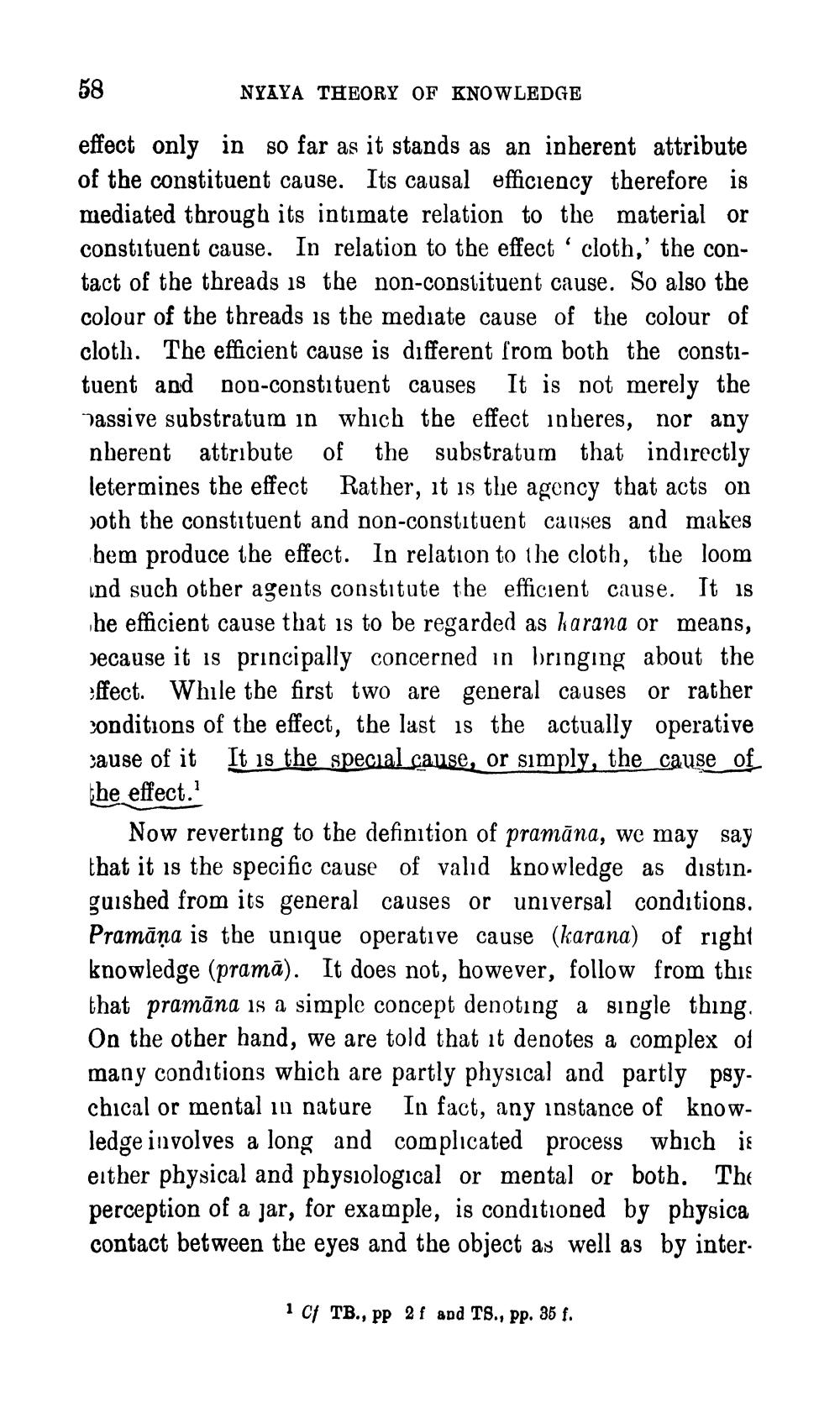________________
58
NYAYA THEORY OF KNOWLEDGE
effect only in so far as it stands as an inherent attribute of the constituent cause. Its causal efficiency therefore is mediated through its intimate relation to the material or constituent cause. In relation to the effect' cloth,' the contact of the threads is the non-constituent cause. So also the colour of the threads is the mediate cause of the colour of cloth. The efficient cause is different from both the constituent and non-constituent causes It is not merely the passive substratum in which the effect inheres, nor any nberent attribute of the substratum that indirectly letermines the effect Rather, it is the agency that acts on both the constituent and non-constituent causes and makes bem produce the effect. In relation to the cloth, the loom ind such other agents constitute the efficient cause. It is he efficient cause that is to be regarded as karana or means, because it is principally concerned in bringing about the
ffect. While the first two are general causes or rather conditions of the effect, the last is the actually operative Pause of it It is the special cause, or simply, the cause of the effect.
Now reverting to the definition of pramāna, we may say that it is the specific cause of valid knowledge as distin. guished from its general causes or universal conditions. Pramāņa is the unique operative cause (karana) of right knowledge (pramā). It does not, however, follow from this that pramāna is a simple concept denoting a single thing. On the other hand, we are told that it denotes a complex of many conditions which are partly physical and partly psychical or mental in nature In fact, any instance of knowledge involves a long and complicated process which is either physical and physiological or mental or both. The perception of a jar, for example, is conditioned by physica contact between the eyes and the object as well as by inter
1 Cf TB., pp 2 f and T8., pp. 35 f.




